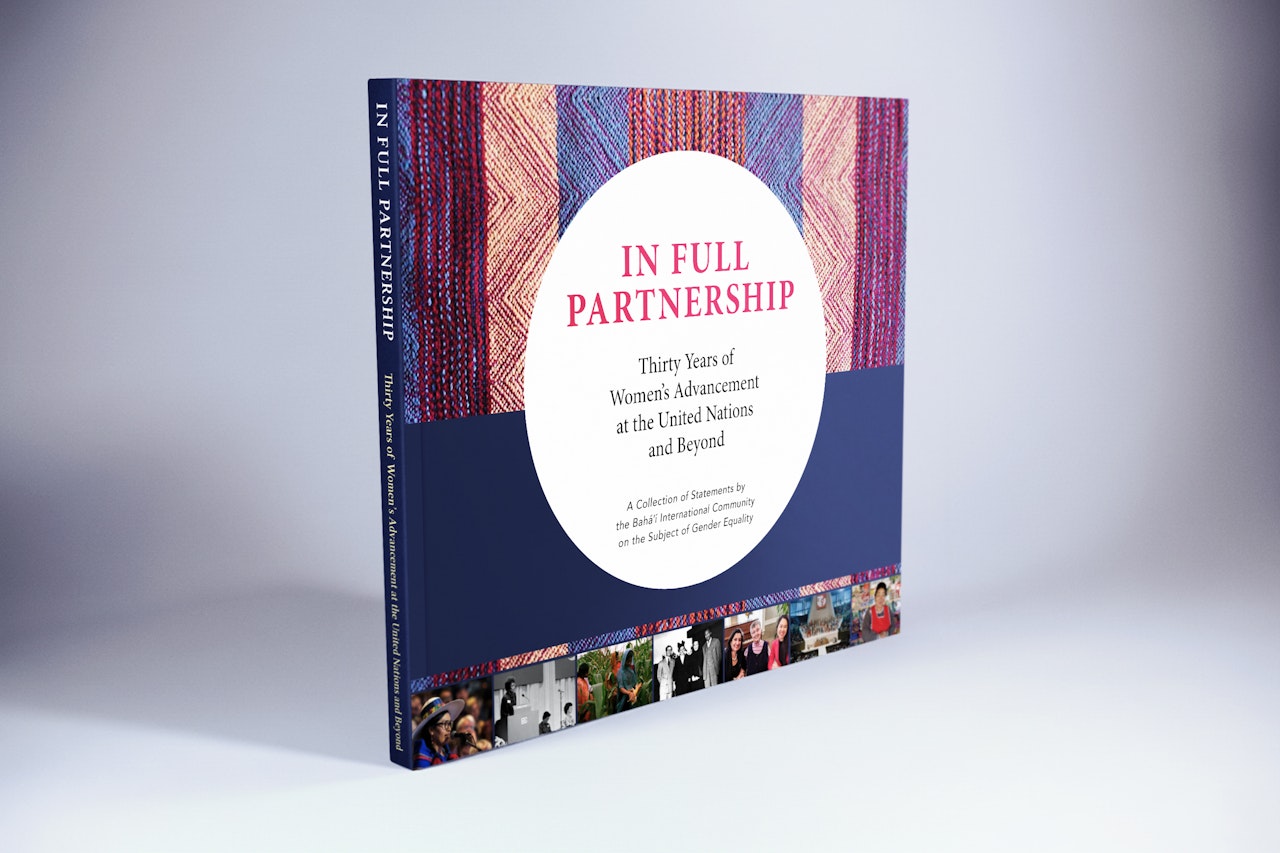BIC New York
New book spans 30 years of contributions to discourse on equality
A new book by the BIC, “In Full Partnership”, reflects on the profound interdependence of humanity’s advancement and the flourishing of women and girls.

A new book by the BIC, “In Full Partnership”, reflects on the profound interdependence of humanity’s advancement and the flourishing of women and girls.

BIC NEW YORK — Marking 30 years since the United Nations’ landmark Fourth World Conference on Women and its Beijing Declaration and Platform for Action, the Bahá'í International Community (BIC) recently launched In Full Partnership: Thirty Years of Women's Advancement at the United Nations and Beyond at an event held at its New York Office.
The gathering brought together diplomats, UN officials, and civil society leaders. Ambassador Maritza Chan Valverde of Costa Rica, incumbent Chair of the Commission on the Status of Women, praised the book as a timely contribution to the “unfinished journey” toward equality. “When we put women and girls at the center,” she said, “societies become safer, economies stronger, and peace more enduring.”
The volume offers a comprehensive compilation of the BIC’s contributions to the international discourse on the equality of women and men, inviting deeper exploration of what it means for humanity to advance together.
The book consolidates three decades of statements, perspectives, and insights shared through sustained participation in the UN’s Commission on the Status of Women. Its contents are organized around the twelve areas of critical concern of the 1995 Beijing Platform for Action, supplemented by sections titled “The role of men and boys” and “Intersections between faith and feminism”.
“The Bahá’í community’s commitment to gender equality and justice is rooted in the belief that all human beings are created to carry forward an ever-advancing civilization, and that gender equality is a prerequisite for peace,” said Bani Dugal, Principal Representative of the Bahá’í International Community, speaking at the book’s recent launch in New York.
The foreword addresses contemporary issues, noting that while the struggle for equality has faced serious challenges—political polarization, entrenched patriarchal norms, and rising authoritarianism—the collective efforts of individuals, social movements, and organizations have also yielded notable progress. This, it states, is a moment for the international community “to reckon with enduring challenges and to recommit to a shared narrative of the world we are building together.”
Drawing on the experiences of Bahá’í communities in more than 100,000 localities worldwide, the book illustrates how collaboration among individuals, families, governments, and organizations can generate new cultural patterns and collective practices rooted in equality.
“Advancing gender equality requires the full engagement of every segment of society,” said Liliane Nkunzimana, a BIC representative. “Ultimately, it is about dismantling harmful norms that limit us all and nurturing new ones that allow women and men alike to flourish.”
A recurring theme in the book is that humanity is on a path of learning how to practice equality. The foreword explains that, as seen in the experiences of Bahá’í communities worldwide, this path unfolds through a deliberate process of action, reflection, and consultation across diverse cultural and economic contexts. Progress, it suggests, cannot rest on legal reforms or policy changes alone; it requires cultivating new mindsets, relationships, and cultural norms that allow women and men to participate shoulder to shoulder in building just and inclusive societies.
Richly illustrated with photographs from across the globe, In Full Partnership is intended as a resource for policymakers, UN agencies, and civil society organizations. It invites reflection on how societies everywhere can translate the principle of equality into lived reality and offers a call to renewed collective action for justice and peace.